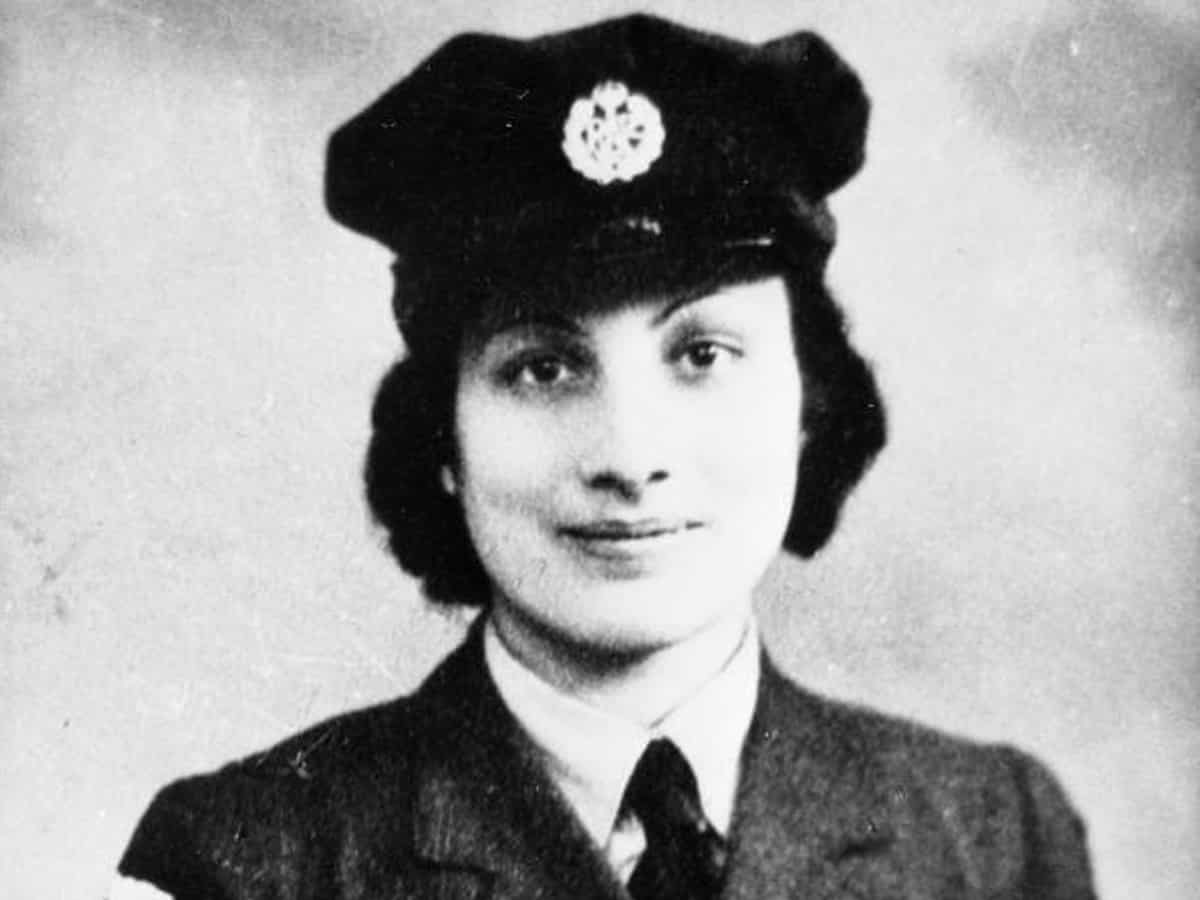
The story of Noor Inayat Khan, the British World War II spy whose Indian heritage can be traced back to the 18th century Mysore ruler Tipu Sultan, has been adapted for a new theatre production for the London stage. The play titled Noor, is now playing at the Southwark Playhouse and it tells the inspiring story of a young pacifist who transformed herself into a heroine of the Second World War. She became the first female undercover wireless operator to be sent from Britain’s Special Operations Executive (SOE) into Nazi-occupied France. She helped to organise clandestine operations against the Nazi forces.
Her story first came to light when the UK based journalist and author Shrabani Basu released her biography titled Spy Princess: The Life of Noor Inayat Khan. The narrative of the book deals with Noor’s courage when she faced terrifying risks with great fortitude. For her heroic deeds she was posthumously awarded the George Cross for bravery by the British government.
Her father Inayat Khan was born in Baroda. He came from a family of hereditary nobles and classical musicians on both sides of his ancestors. His great-great-grandfather was Tipu Sultan, former ruler of Mysore. Inayat Khan lived in Europe as a musician and a teacher of Sufism. His wife was an American woman named Ora Ray Baker who converted to Islam and changed her name to Ameena Begum. The couple had four children of whom Noor was the second. The family later moved to Moscow but departed from the country when the Bolshevik revolution threatened to tear apart the social fabric of the nation. After leaving Russia, they lived first in the UK and then in France.
As the daughter of a teacher, Noor’s natural instinct was for peace and non-violence. She was an accomplished musician and a writer of engrossing children’s stories. She graduated from the Sorbonne University in France and was aiming for a career as a musician and writer. But she felt compelled to join the anti-Nazi movement when she heard about the atrocities being committed by the Nazi forces.
In 1942, she was recruited especially by Prime Minister Winston Churchill’s elite Special Operations Executive (SOE) to work in Paris as a wireless operator under the code name of Madeline. Her clandestine efforts supported the French Underground as Britain prepared for the D-Day invasions. Among SOE agents, the wireless operator had the most dangerous job of all, because the Nazi occupation authorities were skilled at tracking their signals.
The average survival time for a Resistance telegrapher in Paris was about six weeks. Noor served from June 1943 until her capture by the Gestapo in October of the same year. Her career was brief but it was of great help to the Allied forces. When she took up the work, she knew that she would soon be discovered because such was the nature of her job. Yet she discharged her duties diligently until the day her cover was blown and she was arrested by the Nazis. She was only 30 years old when she was executed.
In the play about her life and career, the actress playing her role is British Indian actor Annice Boparai. The play, written by Azma Dar, is focussed on capturing the complexity of Noor’s character and her extraordinary courage.
“I was drawn not only to Noor’s fascinating story, but also her unique and enigmatic character. She was quiet and modest, yet outspoken, strong-willed and fearless,” said Azma Dar to Washington Post. “After years of research, my play was written as an attempt to capture the essence of Noor’s spirit, and to create an interpretation of the many layers of her poetic and thrilling story,” said Dar.
Truly Noor Inayat Khan was a heroic figure who believed in peace but took up a fight against the forces of evil when she felt that the job must be done. She lost her life but she lives in the hearts and minds of people.

